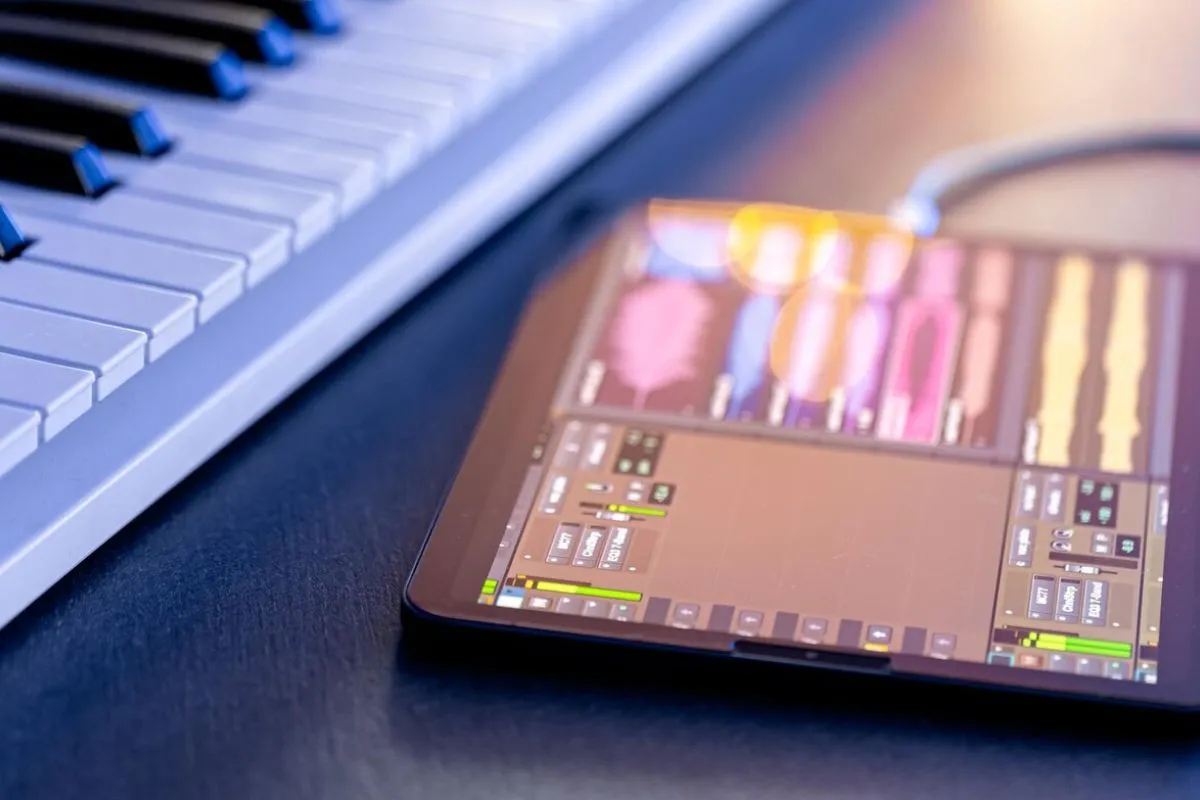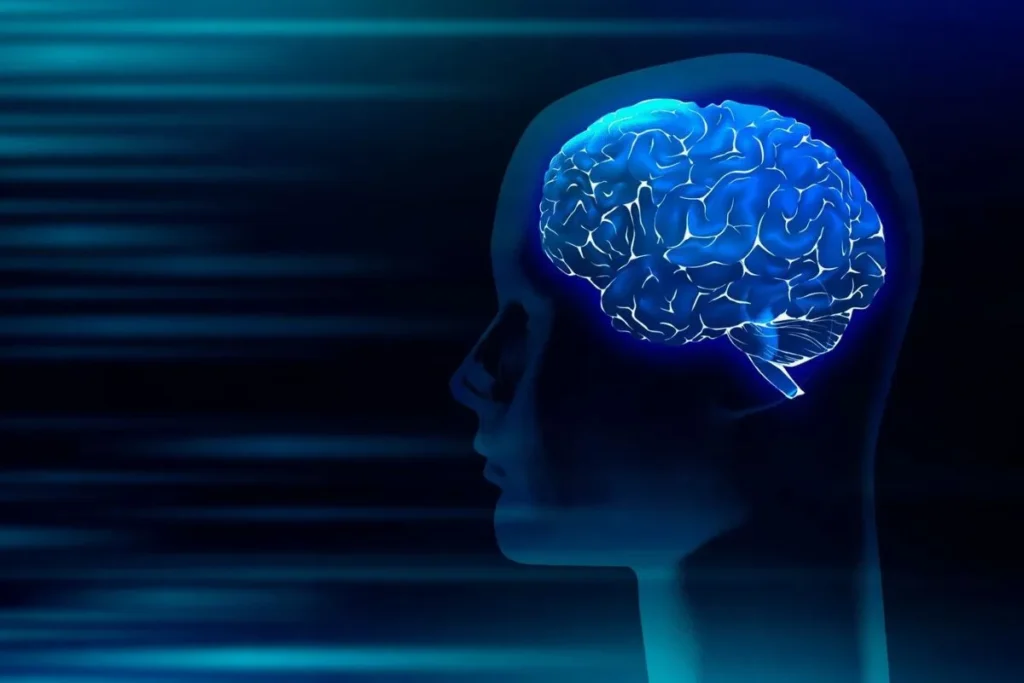BCI-Enabled Music Composition Software is revolutionizing the way music is created. This advanced technology integrates brain-computer interface (BCI) systems with music composition tools.
By leveraging the power of the mind, it opens new vistas for musical expression and creativity. Understanding this technology and its applications is essential for modern music creators.
In this article, we will delve into the development, interaction, and possibilities of BCI-Enabled Music Composition Software.
The Concept of BCI-Enabled Music Composition Software
BCI-Enabled Music Composition Software utilizes brain signals to facilitate music creation. BCI technology converts neural activities into digital signals, enabling a seamless translation of thoughts into musical notes.
This innovative approach allows for a more intuitive and direct form of musical expression, bypassing traditional physical interfaces.
This allows users to compose music directly through their thoughts. The integration of such technology in music composition is a groundbreaking advancement, opening up new avenues for creativity and accessibility in the arts. It empowers individuals with physical disabilities to engage in music creation, fostering inclusivity and diversity in the music industry.
Furthermore, this technology can enhance the creative process for all users, providing a unique tool for exploring new musical ideas. By harnessing the power of the mind, composers can experiment with complex compositions and innovative soundscapes in real-time.
This represents a significant leap forward in the way music is created and experienced.
How BCI Technology Works
BCI systems use sensors to detect brain waves. These sensors typically involve electroencephalography (EEG).
EEG monitors electrical activity in the brain and translates it into usable data. This data is then interpreted by the software for music creation.
The Role of Neuroscience in BCI
Neuroscience plays a critical role in the development of BCI. By understanding brain functions, developers can create more intuitive interfaces.
Research in neuroscience helps refine the accuracy and responsiveness of BCI systems, making the technology more effective.
Benefits of BCI-Enabled Music Composition Software
BCI-Enabled Music Composition Software offers several advantages for music creators. Notably, it enhances creative expression.
Artists can translate their innermost thoughts directly into music. This allows for a more personal and profound musical creation process.
Other benefits include:
- Increased accessibility for individuals with physical disabilities.
- Fresh and unique musical compositions derived directly from brain activity.
- Potential for therapeutic applications in music therapy.
Enhancing Creativity Through Technology
BCI technology not only aids in creating music but also enhances creativity. By eliminating physical constraints, it allows for a free flow of ideas.
This seamless interaction between mind and machine fosters innovative and experimental music compositions.
The Development Landscape of BCI-Enabled Software
The development of BCI-Enabled Music Composition Software involves interdisciplinary collaboration. Experts in BCI, software engineering, and music theory work together.
This synergy is essential to create an effective and user-friendly system. Continual advancements in BCI technology drive progress in music composition software.
Current Software Solutions
Several BCI-Enabled Music Composition Software solutions are currently in development or available in the market. Each offers unique features and capabilities.
Examples include applications that allow users to compose melodies by thinking about specific pitches or rhythms.
Challenges in Development
However, developing BCI software is not without challenges. Ensuring accurate brain signal interpretation is complex.
Software must also be adaptable to individual users, as brainwave patterns vary. Overcoming these challenges is crucial for mainstream adoption.
Real-World Applications and Interaction
The practical applications of BCI-Enabled Music Composition Software are vast. From professional studios to personal use, the impact is significant, enabling both seasoned musicians and novices to explore new creative horizons.
This technology democratizes music creation, making it accessible to a wider audience regardless of physical ability or traditional musical training.
This technology can transform how music is taught, created, and enjoyed. Its potential spans across various domains, including education, therapy, and entertainment.
In educational settings, BCI-enabled tools can offer innovative methods for teaching music theory and composition, engaging students in a more interactive and immersive way.
In therapeutic contexts, this technology can be used to help patients with motor impairments or neurological conditions, providing a new medium for expression and rehabilitation.
Additionally, in the entertainment industry, BCI-enabled music composition can lead to unique, personalized musical experiences for listeners, tailoring compositions to their emotional and cognitive states. The versatility of this technology promises to revolutionize the music industry and beyond.
BCI in Professional Music Production
BCI technology is making its way into professional music studios. Artists can use BCI-Enabled Music Composition Software to explore new sounds and compositions.
This adds a unique dimension to music production, allowing for more innovative outputs.
BCI in Music Therapy
In the realm of therapy, BCI-based software offers significant benefits. Music therapists can use it to help clients express themselves.
This technology can be particularly helpful for those who have difficulty communicating through traditional means.
Future Prospects of BCI-Enabled Music Technology
The future of BCI-Enabled Music Composition Software looks promising. Ongoing research and development continue to enhance its capabilities.
As technology advances, so too will the applications and effectiveness of these systems.
Potential Innovations
Future innovations may include more intuitive user interfaces. Additionally, improved neural signal processing will enhance accuracy and responsiveness.
This could lead to more sophisticated and varied musical compositions.
Success Stories and Case Studies
Several success stories highlight the potential of BCI-Enabled Music Composition Software. Musicians have already begun to incorporate this technology into their work.
These case studies illustrate the transformative impact of BCI on music creation.
Artists Using BCI Technology
Some artists have successfully adopted BCI-Enabled Music Composition Software. These musicians create groundbreaking and unconventional music.
Their experiences demonstrate the creative power of BCI technology.
Noteworthy Projects
Several noteworthy projects have emerged from BCI technology. Collaborative efforts between technologists and musicians are particularly impactful.
These projects push the boundaries of what is possible in music composition.
Evaluation and Future Steps
The future of BCI-Enabled Music Composition Software remains bright. Continuous improvement and user feedback are essential for refining the technology and enhancing user experience.
By actively incorporating feedback, developers can address usability issues and introduce features that cater to the needs of diverse users.
Embracing these advancements will lead to even greater innovation in musical creativity. As the technology evolves, it will unlock new possibilities for composition and performance, pushing the boundaries of what is musically possible.
This ongoing innovation will not only enrich the field of music but also inspire creative expression in ways previously unimaginable.
Moreover, as more artists and musicians adopt BCI-enabled tools, we can expect a surge in collaborative projects that fuse human creativity with cutting-edge technology.
This synergy will foster a vibrant and dynamic music landscape, continually driving progress and experimentation. The integration of BCI technology into music composition heralds an exciting future for artists and audiences alike.
Frequently Asked Questions
What is BCI technology?
BCI (Brain-Computer Interface) technology allows communication between a brain and an external device.
How does BCI-Enabled Music Composition Software work?
It uses brain signals detected by EEG sensors to control music composition software.
What are the benefits of BCI-Enabled Music Composition Software?
It enhances creative expression, provides new musical possibilities, and increases accessibility.
Are there any challenges in developing BCI software?
Yes, challenges include accurate brain signal interpretation and adapting to individual brainwave patterns.
Can BCI technology be used for music therapy?
Yes, it can help individuals express themselves and can be particularly useful in therapeutic settings.




